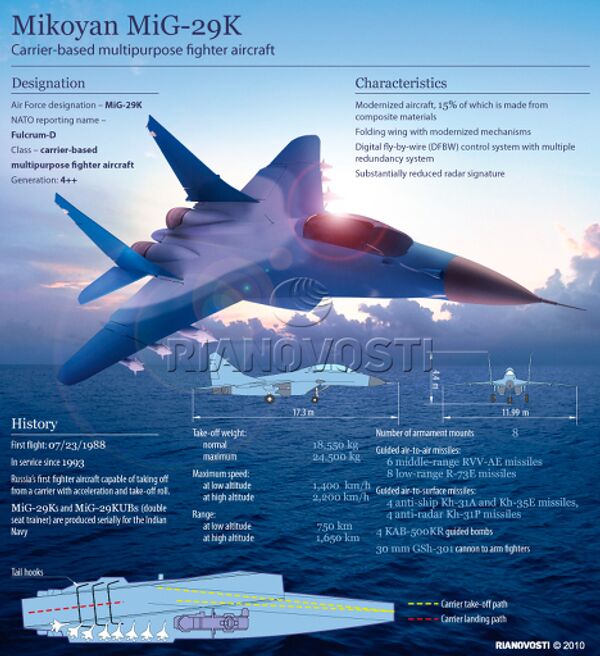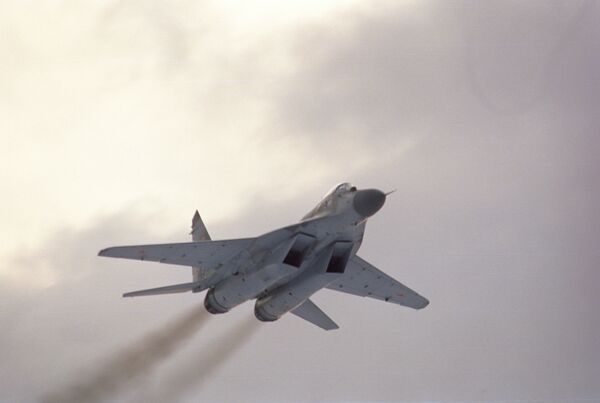
“A Syrian delegation is currently in Moscow. We’re discussing details and timeframe of a possible contract,” MiG head Sergei Korotkov told journalists, but did not elaborate.
Syria signed a contract for the jets in 2007, but the outbreak of the civil war in Syria in 2011 prompted the plane maker to put a deal to deliver 24 MiG-29MM fighter jets on hold, a MiG representative told RIA Novosti on condition of anonymity.
The $1 billion deal included 24 MiG-29s, as well as five MiG-31 interceptors, Kommersant daily said in 2007. The head of the Russian state arms export monopoly Rosoboronexport, Anatoly Isaikin, denied the MiG-31 deal in 2010, but did not mention the MiG-29 contract.
The Syrian Air Force revisited the deal ahead of the expiry of the European arms embargo against Syria, the MiG representative said.
EU foreign ministries failed this week to reach an agreement to prolong the ban on arms sales to Syria, which was introduced in 2011 and expires this Friday.
The decision leaves EU countries – most of which support the opponents of Syrian President Bashar Assad – free to supply arms to Syria.
The foreign ministers of all 27 EU members agreed to withhold actual supplies of arms until August 1, after the international conference on Syria, tentatively scheduled for mid-June.
But Russian Foreign Minister Sergei Lavrov said on Tuesday that the lifting of the EU arms embargo would hurt the prospects for the upcoming conference.
The conference on Syria is a joint project by Russia and the United States, which hope to get the Syrian regime and the rebels to negotiate and begin reconciliation by working out a transitional government.
Russia is reported to be planning to supply the Syrian regime with S-300 missile defense batteries, though the deal has never been officially confirmed.
Moscow is fulfilling contracts with Syria made before the outbreak of the Syrian crisis in 2011 and plans no new deals, Kremlin aide Yury Ushakov said on Friday, without elaborating.
Last July, Vyacheslav Dzirkaln, deputy head of the Federal Service for Military-Technical Cooperation, said Russia would not deliver any new types of weapons or sign any military contracts with Syria until the situation there stabilizes, including delivery of 36 Yak-130 advanced jet trainer aircraft under a previously signed $550 million deal.


